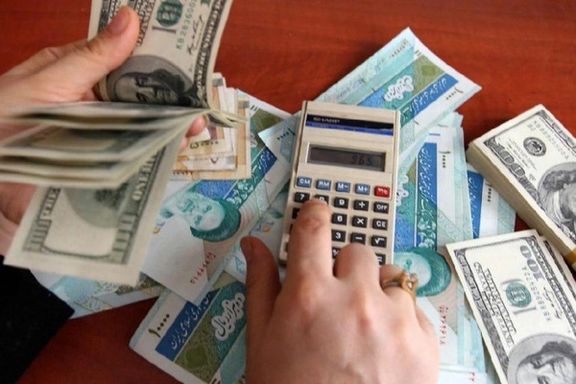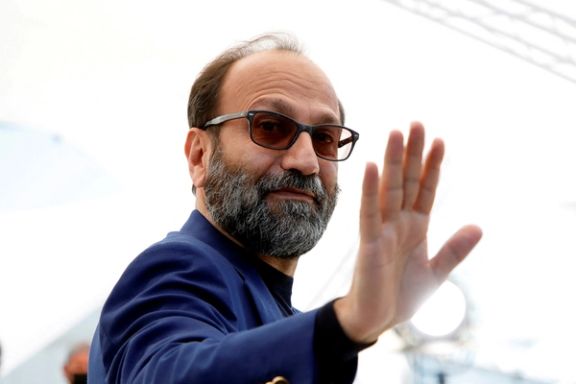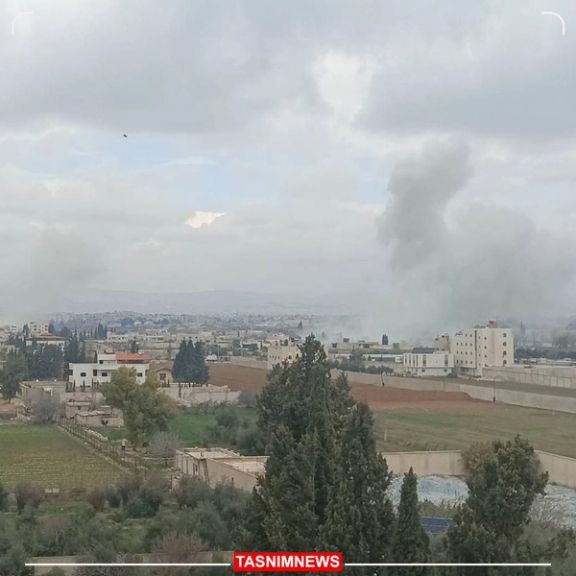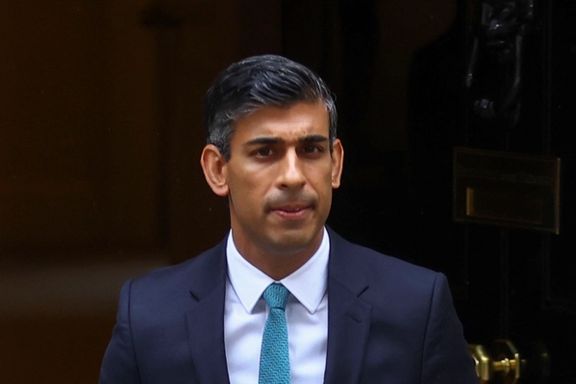Iran’s Currency Falls To An All-Time Low With Prospect Of US Action

Iran’s currency, rial, hit an all-time low on Monday amid fears of US retaliation for a drone attack over the weekend that killed three American servicemen in Jordan.

Iran’s currency, rial, hit an all-time low on Monday amid fears of US retaliation for a drone attack over the weekend that killed three American servicemen in Jordan.
The US dollar rose to more than 584,000 rials, the highest since February 2022, when it briefly traded at that level. The euro topped 630,000 and the British pound reached 740,000 rials.
President Joe Biden announced on Sunday that Iranian-backed militia were responsible for striking a US base near the Jordanian and Syrian border killing 3 and injuring more than 30 service members. Later in the day, he vowed retaliation against those responsible.
This brings the rial’s fall to more than 15 percent since the beginning of January, when tensions began to rise with attacks on international shipping by Iran-backed Houthis and US retaliatory strikes.
The Iranian currency, which has steadily lost value since the 1979 revolution, began depreciating in 2018, when then-president Donald Trump withdrew from the JCPOA nuclear deal and imposed sanctions on Iran. Since then, the dollar rose from 42,000 rials to more than 580,000. Before the establishment of the Islamic Republic in 1979, the dollar traded at 70 rials.
With annual inflation hovering above 40 percent for three years, the Iranian government faces a precarious situation. The fall of the rial is bound to fuel more inflation and the impoverishment of the population, which is already facing rising prices.

The head of Iran's Foundation of Martyrs and Veterans Affairs disclosed on Monday that medications crucial for veterans of the Iran-Iraq war are not readily available in the country.
Speaking to ILNA news agency, Amir-Hossein Ghazizadeh Hashemi claimed, "Our issue is not financial; it's the availability of the medicines in the market. This year, we didn't have financial problems, meaning it wasn't about money; the problem was the absence of medications. The drugs should be available in the market so that the foundation can provide them to veterans."
Highlighting the necessity for medicines addressing "neurological and psychological" issues stemming from the eight-year war (1980-1988), Ghazizadeh Hashemi stated, "I am aware of the predicament. Sometimes we import them inappropriately in suitcases, which is not the correct method."
Reports in recent months have surfaced regarding the scarcity and soaring prices of various medications in Iran, coupled with the bankruptcy and closure of pharmaceutical companies. Additionally, there are indications of several Iranian pharmaceutical firms relocating to neighboring countries to sustain operations.
Importing medicine is controlled by the government, which should appropriate foreign currency to both public and private sector importers. Annual imports of medications and pharmaceutical raw materials costs more than $2 billion.
Iranian authorities attributing the medicine shortage in the country to sanctions, but the United States insists that medicine is not among the sanctioned items, maintaining that Iran can import it.

Prominent Iranian filmmaker Asghar Farhadi says he will not produce any films in Iran until the ban on showing women without headscarves is lifted, as people demand.
For decades, Iranian filmmakers, including Farhadi, have been compelled to depict female characters with their hair covered by a headscarf or a tightly fitted hat, along with loose-fitting clothing that conceals the neck, arms, and legs.
Farhadi says he will not cover women's hair in his films “systematically” as long as compulsory hijab rules are in place and Iranians defy the ban. “I will not make films in Iran as long as I am not free from this constraint,” he told Le Monde in an interview conducted last month on the sidelines of Les Arcs Film Festival in France where he chaired the jury.
The rule applies even when the characters are in places where they are supposed to have complete privacy in the story, such as their bedrooms. Filmmakers and screenwriters often must go to great lengths to avoid scenes where the appearance of the female characters in anything less than acceptable to the authorities may result in the scene being censored in pre-screening vetting by officials appointed to review films according to religious and political guidelines. Films can also lose permission for public screening.
Farhadi also told Le Monde that Iranian filmmakers persevered in creating films for four decades despite heavy censorship and repression, but in the past year film production has dropped hugely. “I can’t work in these circumstances, either.”

The director of the Academy Award winning “A Separation” and “The Salesman”, who had always insisted on staying in Iran, was criticized for often avoiding comments on political issues but like many of his colleagues, he openly supported the Woman, Life, Freedom Movement in 2022.
“I’m restless and disgusted since reading the news, this time with myself,” he wrote in an Instagram post he addressed to Mahsa Amini who fell into a coma after receiving a head injury during her arrest by the morality police in September 2022 for what they considered as “inadequate hijab”.
“Faced with this boundless cruelty, we pretend we are sleeping. We are partners in this crime,” he wrote.
In another post he urged all artists, filmmakers, intellectuals, and rights activists around the world to show solidarity with Iranian men and women by making videos, writing articles or any other way they could.
Later in April, he told Variety Magazine that he was not totally sure he would be allowed to leave the country again if he went back to Iran, as he planned to do at the time before starting to shoot his new film in the US.
“I’m not officially aware of being banned from working in Iran, but I have heard it unofficially. Moreover, I know that I’m officially banned from any business transactions. And again, unofficially, I have heard that I am banned from leaving Iran,” he said.
Farhadi’s passport was taken from him upon returning to Iran two years after winning his Academy Award for best foreign film in 2011. He was also interrogated at the airport and called in by intelligence agencies.
Many Iranian actors and other artists who publicly supported the Mahsa movement and fused to wear hijab were banned from working by the authorities. Some, like Taraneh Alidoosti who appeared in Farhadi’s Separation, and Katayoun Riahi were arrested and prosecuted for hijab rebellion.

Yemen’s Houthi militia claimed on Monday to have attacked a US Navy mobile base at sea, alleging the targeting of the USS Lewis B. Puller by a ballistic missile.
The USS Lewis B. Puller functions as a floating landing base and was previously stationed in the Arabian Sea as part of US efforts to counter Iran-backed Houthi attacks on commercial shipping in the Red Sea and Gulf of Aden.
Houthi military spokesperson Brig. Gen. Yahya Saree claimed that a missile was fired at the Puller in the Gulf of Aden on Sunday, but no evidence was presented to substantiate the claim.
Houthi attacks will continue “until the aggression is stopped, and the siege is lifted on the people of Palestine in the Gaza Strip,” Saree said in the statement.
However, a US defense official, speaking anonymously about intelligence matters, stated that there had been no reported attack on the Puller.
The Houthis have previously launched missiles that failed to reach their intended targets, posing risks to both land and sea.
Since November, the Houthis have targeted ships in the Red Sea amid Israel’s offensive in Gaza against Hamas. The attacks have jeopardized shipping in a critical trade route between Asia, the Middle East, and Europe.
The Iranian regime and its regional proxies have been implicated in attacks against the US and its allies almost daily since mid-October. However, the Biden administration has yet to devise an effective strategy to alter the pattern of behavior.

Media reports indicate an attack on the headquarters of Iran's Islamic Revolutionary Guard Corps (IRGC) in the "Sayyidah Zainab" area in southern Damascus.
Iranian and Syrian sources claim the attack was launched by Israel, but there is no official acknowledgement about who was behind the missile strike. Syrian state media, blaming Israel, said that "a number of Iranian advisers" were killed, in a rare acknowledgment by Damascus of Iranian casualties in Israeli strikes on Syrian territory.
The reported attack followed the killing of three US soldiers overnight on Sunday when Iran-backed militia forces fired a drone at an American base on the Jordanian-Syrian border.
Al-Arabiya network has identified the targeted location in Syria as the command center of forces affiliated with the Islamic Republic. Reuters, citing a source close to Iran, reported that the attack targeted a base used by the IRGC. Later, Iran's ambassador to Syria denied that the IRGC headquarters was hit, while Tasnim news agency in Tehran affiliated with the Revolutionary Guards did confirm the target.
Following this attack, the Islamic Republic of Iran's state television reported the deaths of two individuals, describing the attack as occurring in a "residential area." State media added that "a residential building in the Aqraba area near Zainabiyah" was the target.
A source in Iran's regional alliance told Reuters the strike had hit a location used by Iran's Revolutionary Guard Corps. However, it is not clear who launched the attack. Israel has also been targeting Iran-affiliated military sites for years.
US President Joe Biden on Sunday vowed to retaliate against the attack, as lawmakers and former US officials expressed outrage at the deadly attack, which they see as an Iranian declaration of war.
US troops in Iraq and Syria have been facing constant missile and drone strikes since last October when Israel began its onslaught on Gaza in response to Hamas’ rampage of the Israeli border communities. This is the first time, however, that such strikes have resulted in loss of American life – which many in Washington consider to be a red line.
The loss of life, after repeated warnings by his Iran policy critics, has left Biden with very little option but to escalate.

UK Prime Minister Rishi Sunak has urged Iran to de-escalate tensions in the Middle East after a drone attack by Tehran-backed forces killed three US soldiers in Jordan.
“We are concerned and would urge Iran to continue to de-escalate tensions in the region…We absolutely condemn what has happened over the past couple of days,” Sunak said on Monday.
US President Joe Biden on Sunday vowed to retaliate against the attack, as lawmakers and former US officials expressed outrage at the deadly attack, which they see as an Iranian declaration of war.
Britain, the closest US ally in Europe, joined the United States this month in launching retaliatory strikes against Yemen’s Houthi forces, armed and supported by Iran. The Houthis have been attacking international maritime traffic in the Red Sea since mid-November, after Iran’s Supreme Leader Ali Khamenei called on Muslim countries to blockade Israel.
Sunak expressed his concern as the world expects an imminent US retaliatory attack possibly in Syria, Iraq or even at Iranian targets.
“We stand resolutely with our allies to bring stability and peace to the region…And that’s what we’ll continue to work towards,” the Prime minister said.